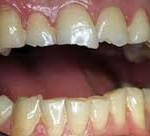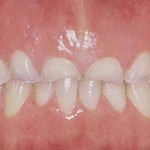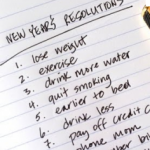Hey, don’t’ worry Teeth Grinding is not a disease, but it can ruin your teeth permanently.
“Doc, what do you mean I grind my teeth? “ You would notice if you grind your teeth, wouldn’t you? Do your front teeth ever get worn out, or those fillings on your front teeth that keep chipping and breaking every few years? So why don’t’ you think you might be a grinder?
What is it? Bruxism is when you clench (tightly hold your top and bottom teeth together) or grind (slide your teeth back and forth over each other) your teeth. It is a ‘parafunctional’ action, an action that serves no useful purpose. But it is not an action that you can control, like eating, talking, or swallowing (things the mouth and teeth are made for). It is an action that you can’t control, like your heart rate or digestion.
When you are awake, you can control how strongly you bite, chew, or ‘grind’ your food. But all bets are off when you are asleep. The biggest culprit of bruxism are the strong muscles of mastication, which are the muscles in our head that helps our jaws move. Those muscles are ‘exercising’ all night long when you are grinder. Since you have no control over it, you are actually grinding or clenching much harder than you would if you are awake. Since it is happening while you are sleep, like your breathing and heart rate, you may not be aware of how serious the problem is.
Some people probably clench their teeth and never feel symptoms. Whether or not bruxism causes pain and other problems may be a complicated mix of factors:
- How much stress you are under
- How long and tightly you clench and grind
- Whether your teeth are misaligned
- Your posture
- Your ability to relax
- Your diet, alcohol use, drugs/medications use
- Your sleeping habits
So how does the dentist know that you are a bruxer?
Some of the signs of bruxism that your dentist sees are:
- Worn down back teeth
- Worn down front teeth
- Broken teeth
- Broken fillings
- Pain in muscles of the face
- History of Migraines or headaches that do not get better even with medicaitons
- TMJ pain
- ‘Tired’ facial muscles, neck pain, shoulder pain, tightness in the face even after a good night’s sleep
There is no cure of bruxism, but there are things we can do to help. A night-guard, worn everyday, will help tremendously with both the grinding habit, and protecting the teeth long term. I almost always tell any patient who is a grinder, or even if there is remote chance that they are grinder, that the best investment in protecting not only their own teeth, but any dental work they have, is get a night-guard.
Give us call to learn more about the NTI system. The NTI-tss is an FDA approved oral appliance originally developed for migraine sufferers. We have helped both types of patients find relief with the NTI appliance. Check out our ‘smile gallery’ to see photos of what modern dentistry can do for you if you have worn out teeth and want them to look good again.












